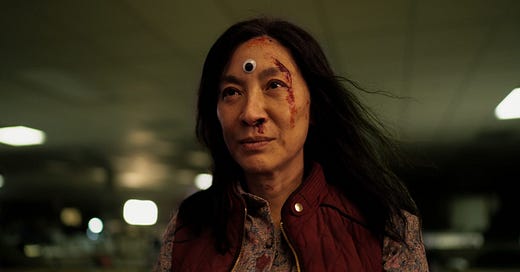Watching
Everything Everywhere All at Once (2022)
The Nintendo Switch fighter game Super Smash Bros. Ultimate, released some three and a half years ago, launched with the tagline “Everyone is here.” What started as a reference to one thing (all fighters from all four previous installments of the franchise would be playable out of the box) took on new mean…




